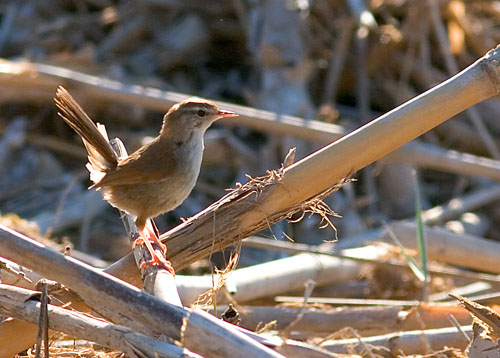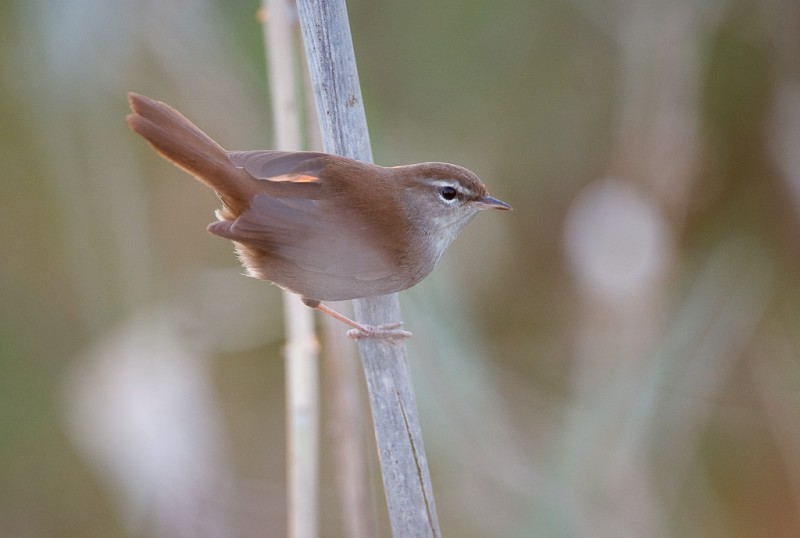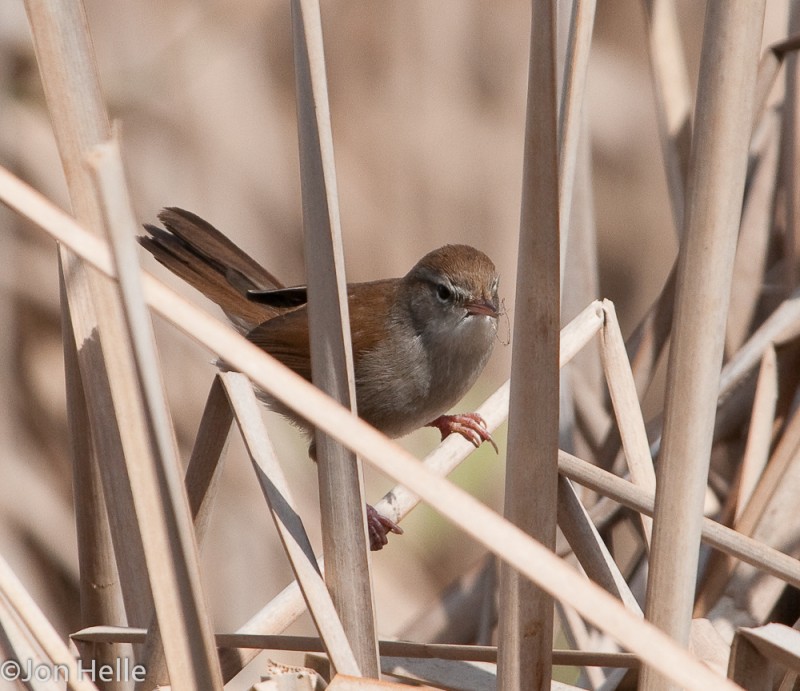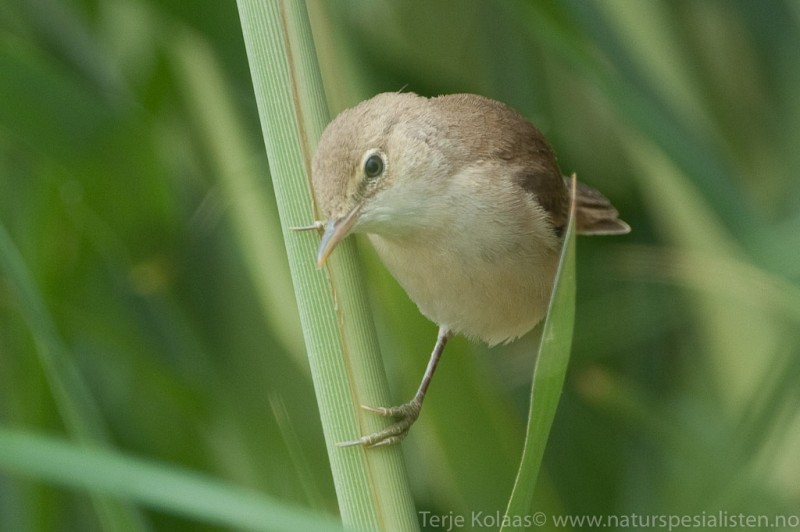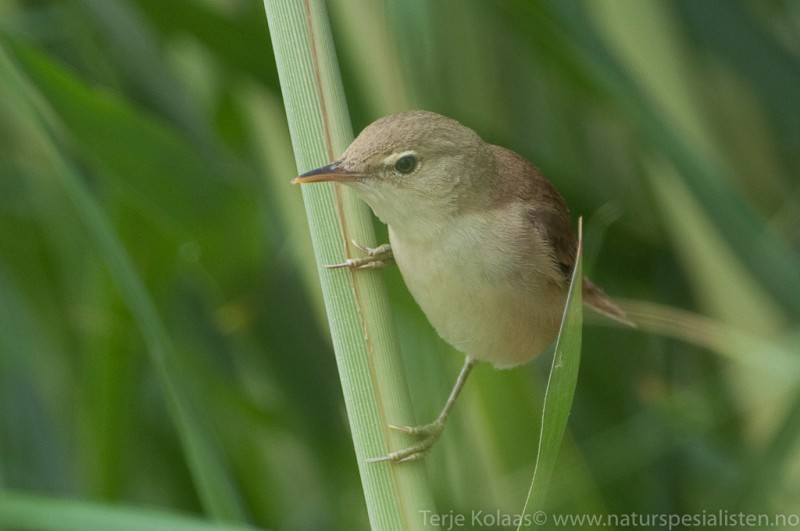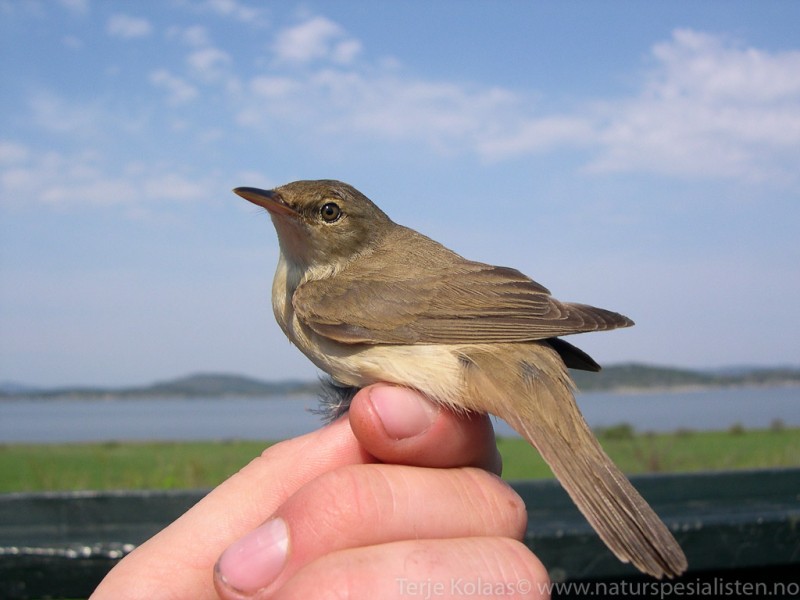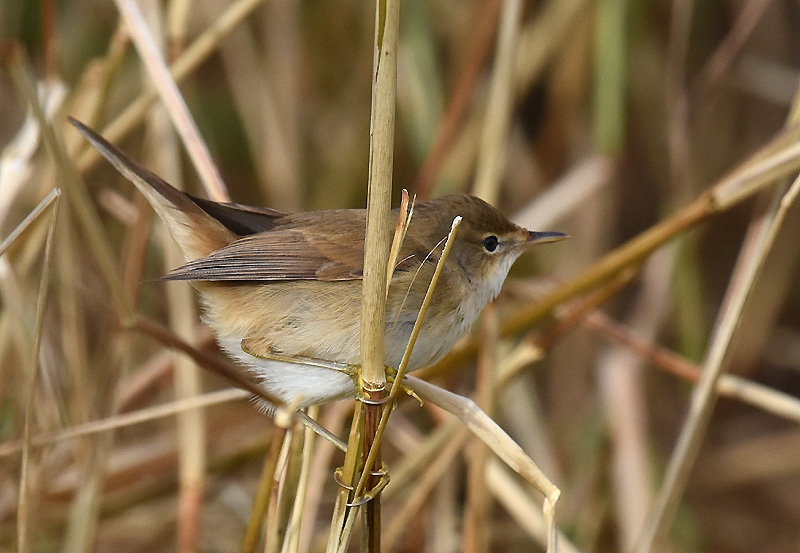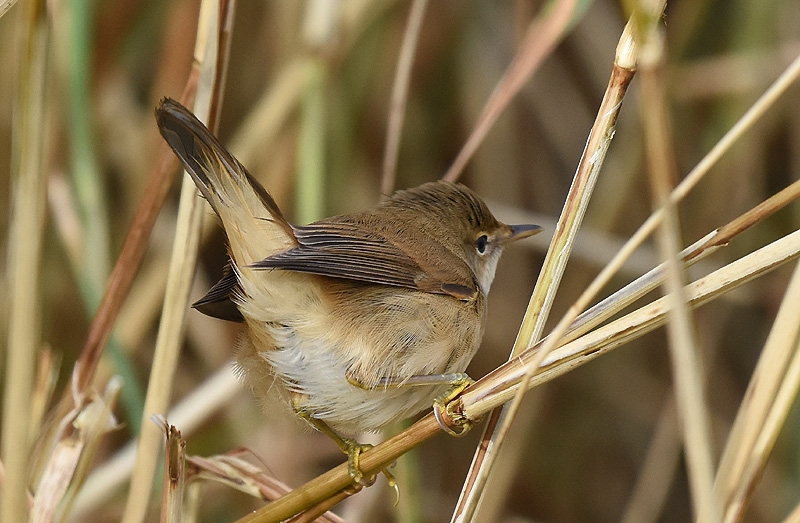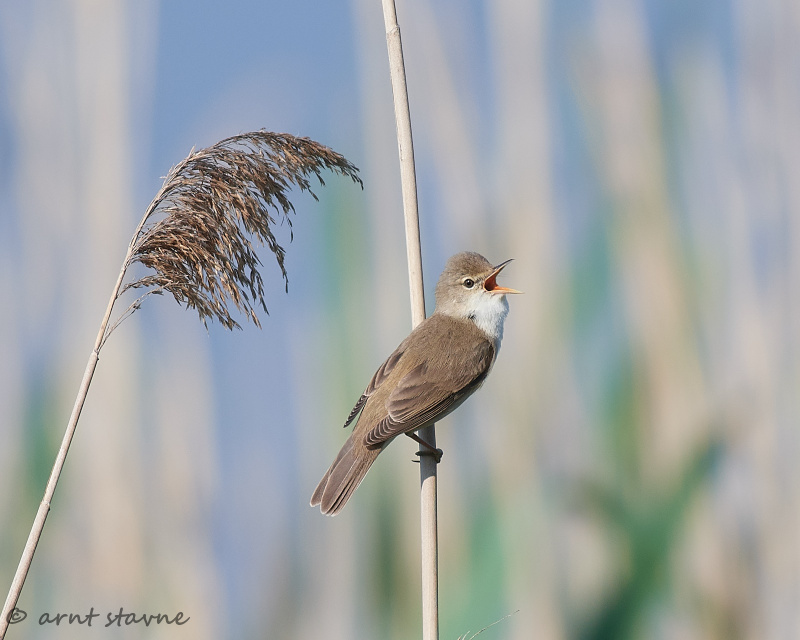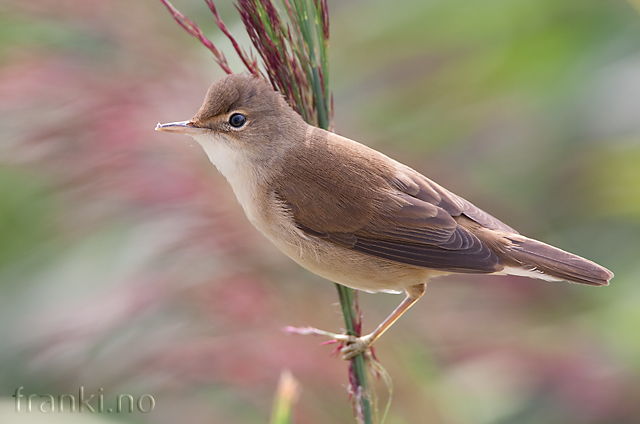Cetti's Warbler (Cettia cetti)
Reed Warbler (Acrocephalus scirpaceus)
Small, warm buff warbler with skulking behaviour, but conspicuous song. Similar in size to Reed Warbler, but with short, rounded wings and rounded tail. Build fairly compact, but bill thin and slender. Supercilium thin and dull. Cheeks and underparts greyish white, lacking the purer white belly of confusion species. Pale eye-ring. Under tail-coverts usually brown with pale fringes. Often flicks tail or holds it raised. Usually hides among undergrowth, and shows itself only when moving from one shrub to another.
Sound:Contact call a short, metallic, ascending "vitt". Often given in rapid series. Song diagnostic, and readily given throughout the year. Phrases last from 2 - 5 seconds, consisting of a few loud, clear and rapid glissandi, given in approximately same register. E.g. "cetti cetti cetti", usually with a few introductory notes, and some variation to the phrase. Overall a very explosive, and with a staccato rhythm.
Song:
Distribution:
Xeno-canto: map
Ecology:Birdlife ecology
Links:
Observation.org Latest observations
Image search Flickr NB! May give other species
CCPlain and characterless warbler with secretive behaviour. Larger than Sedge Warbler, with larger wings, broader tail and tail-base. Very similar to Marsh Warbler, and very hard to distinguish by plumage alone. Rump of Reed warbler warm rufous brown, warm buff flanks (yellowish tinge in Marsh Warbler), and slightly longer and more pointed bill. Differs from Blyth's Reed Warbler by longer primary projection, yellowish lower mandible and paler legs. Juveniles especially hard to identify, because of even fainter plumage field marks. Attached to reed beds.
Sound:By far easiest to identify by song: Characteristic, almost metric and even rhythm, very different from Sedge Warbler. Squeaky timbre with many, almost bizarre, harmonics. Phrases generally repeated 2-3 times. Alarm call a harsh, dry and rolling "kraaaat".
Song:
Distribution:
Wikipedia: map (se also Xeno-canto below)
Ecology:Birdlife ecology
Links:
Observation.org Latest observations
Image search Flickr NB! May give other species
CC
 English
English Albanian
Albanian
 Armenian
Armenian
 Bulgarian
Bulgarian
 Catalan
Catalan
 Croatian
Croatian
 Czech
Czech
 Danish
Danish
 Dutch
Dutch
 Finnish
Finnish
 French
French
 Georgian
Georgian
 German
German
 Greek
Greek
 Hungarian
Hungarian
 Italian
Italian
 Latvian
Latvian
 Lithuanian
Lithuanian
 Macedonian
Macedonian
 Norwegian
Norwegian
 Polish
Polish
 Portuguese
Portuguese
 Romanian
Romanian
 Russian
Russian
 Sami : Lule sami
Sami : Lule sami
 Sami : North sami
Sami : North sami
 Sami : South sami
Sami : South sami
 Scientific names
Scientific names
 Serbian
Serbian
 Spanish
Spanish
 Swedish
Swedish
 Ukrainian
Ukrainian

